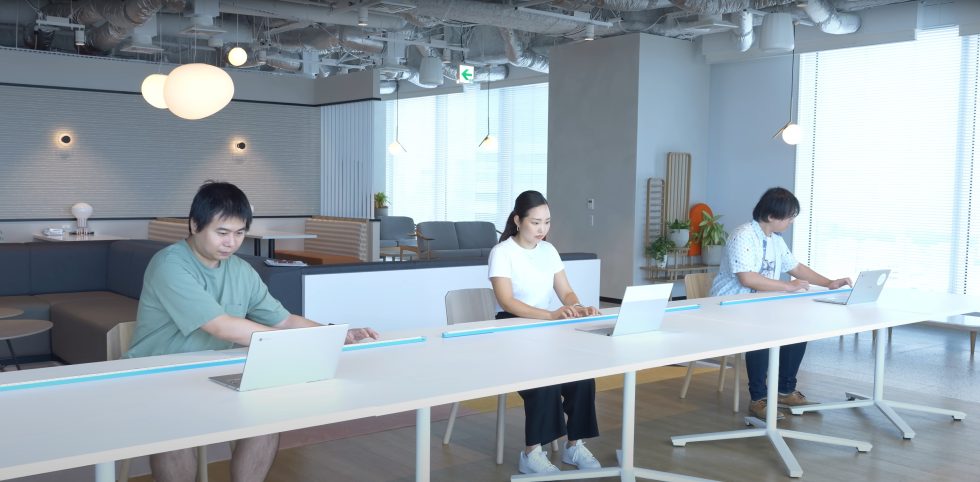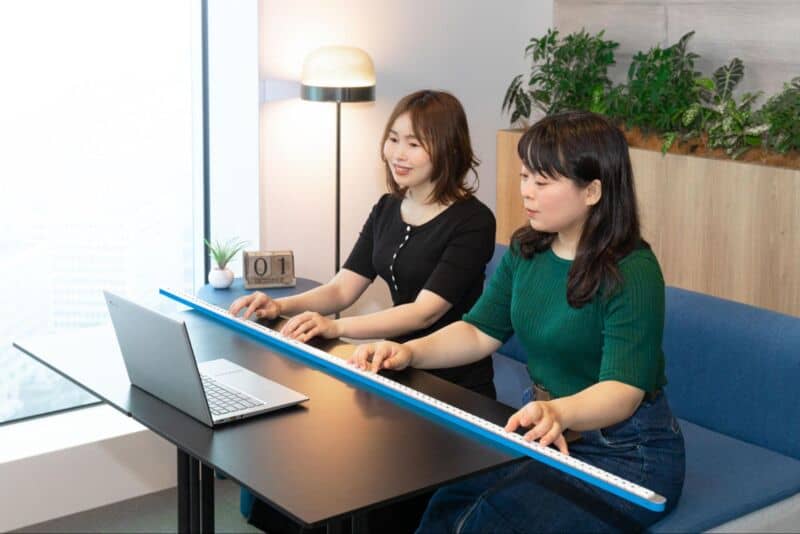Google Japan has a history of joke keyboard concepts that challenge common notions of computing input. The latest concept, the Gboard Stick Version, places every key in the same row, so hunting and pecking can take a more linear approach.
As shown in Google Japan’s YouTube video below, it appears Google Japan actually prototyped the lengthy keyboard. Google will not be mass-producing or selling it, but there are GitHub files available with open source firmware, circuit diagrams, and design drawings to build the keyboard yourself. The GitHub page is careful to note that “this is not an officially supported Google product.” Google Japan’s blog post from Saturday said you could make the Gboard Stick Version with a 3D printer.
As designed, the keyboard is an extraordinary 5.25 feet (1,600 mm) long. If you think that’s lengthy, the company said the original prototype was 7.87 feet (2,400 mm) long. The keyboard uses 17 boards total, including 16 for mounting the keys and a control board.
Google Japan jestingly argues that this design is more convenient for cluttered desks, storage, and finding the right keys when typing. Google Japan’s video shows the keyboard with an alphabetical layout, as a user initiates touch typing by memorizing the distance of individual keys from the left border. Alternatively, it’s ‘easy’ to find P, for example, knowing that it’s the 17th key in from the left (the first key from the left is a search button, not A). Surely, this is all simpler than hunting and pecking up, down, left, and right on a traditional keyboard layout.
Google Japan’s page for the keyboard also suggests you can use it with a QWERTY or ASCII code layout.
Many detailed use cases for this one-row keyboard are clearly jokes, from using it to measure your kid’s height and get items dropped behind the couch, to using it as a walking stick, or the “bug-fixing module,” aka net, that turns the keyboard into a bug catcher in case you encounter bugs when coding (get it?).
But one purported benefit we could actually get behind is how much personal space the keyboard naturally enforces in the office and beyond:

Google Japan’s outlandish keyboard concepts have been going on for years as a way to promote Google’s Gboard keyboard app. Past iterations have included the Gboard Teacup Version and Gboard Spoon Bending Version.

